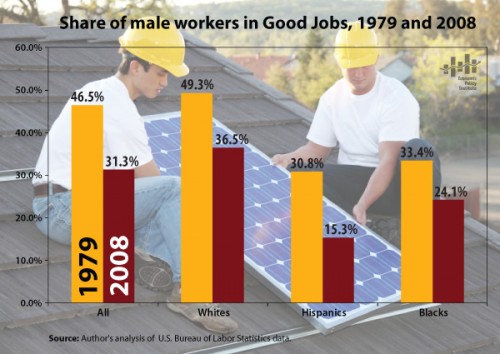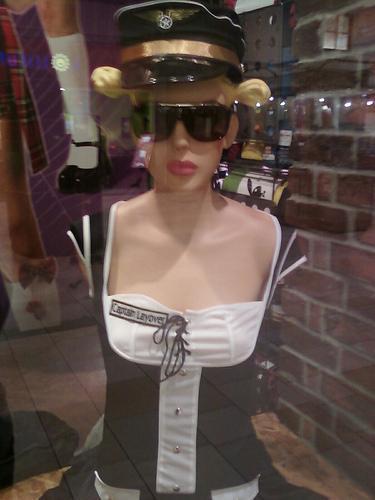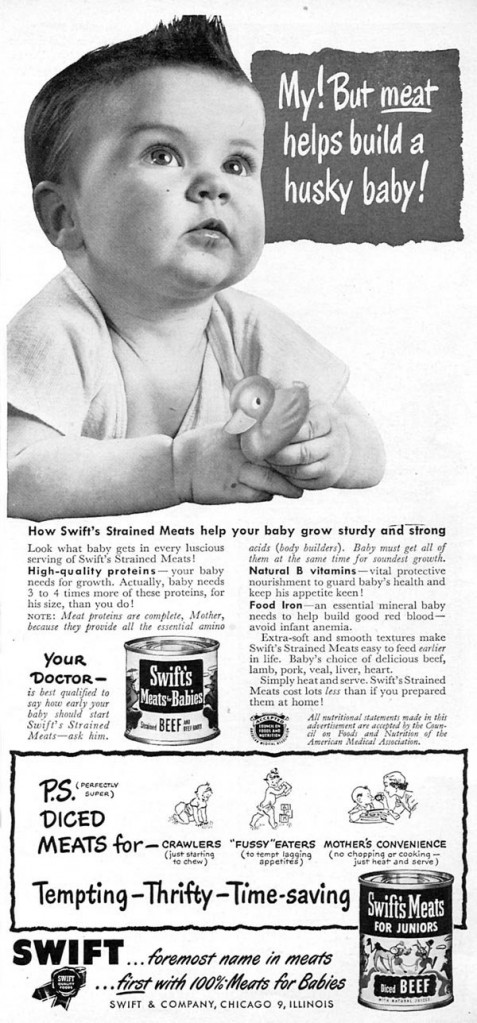Chelsea S. sent in a link to the BVD website and its BVD MANual campaign. BVD is a brand of men’s underwear. The site has several tabs that let you “study” men in various ways. In the Chemistry section we see what men are made up of (larger version here):

So guys are made up of, among other things, obnoxium, machisium, bragnausium, and larcenic.
If you go to the Sociology section you can take two quizzes. The first is about getting dressed (take the quiz here). If at the first step you answer that you are male you are taken to a second step that asks “model or guy?” If you answer model, you are directed to the female category. Once on the female track, you get to go through a series of questions playing on stereotypes of women and, apparently, men who don’t qualify as “guys”:
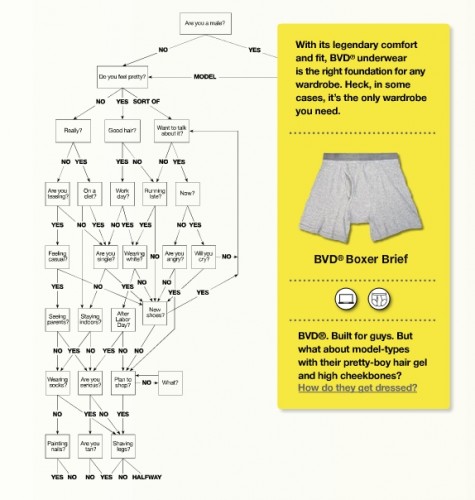
The second one is on being comfortable (quiz is here). In the second step you have to choose between “sensitive type” or “guy,” and if you choose “sensitive type,” you go to the female section:
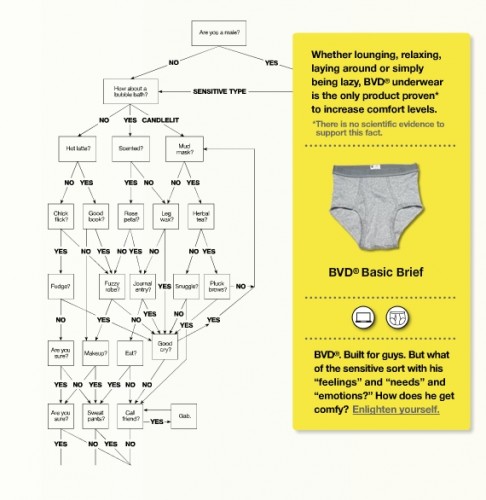
In both cases, at the end of the female path, the last question is “Wouldn’t you rather just be a guy?”
It’s a great example of the association of “real” manliness with obnoxious characteristics, while men who don’t meet the requirements for being real men are feminized. While real guys are stereotyped (they’re self-centered, obnoxious, and braggy), those characteristics are still preferable to being a “sensitive” guy with “feelings” and “needs.” And of course, it also denigrates women when being associated with femininity is a way of ridiculing men.

